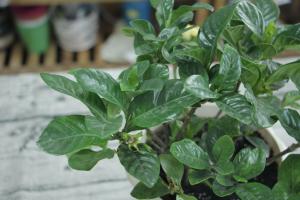Introduction
Pepper plants are a staple in any vegetable garden, and they require a specific watering schedule to thrive. Knowing how often to water your pepper plants is crucial in maintaining their health and productivity. In this article, we will discuss the factors that affect the watering needs of pepper plants, how to determine the ideal watering schedule, and tips for proper watering techniques.
Factors Affecting Watering Needs of Pepper Plants
Several factors influence how often you should water your pepper plants:
The stage of growth of the plant
The temperature and humidity in your area
The type of soil and compost you are using
The size and age of the plant
The amount of sunlight the plant is receiving
All these factors can affect the amount of water your pepper plants need. It is essential to monitor these factors and adjust your watering schedule accordingly.
Determining the Ideal Watering Schedule
The watering needs of pepper plants vary depending on their growth stage. In general, a mature pepper plant of average size will need around 1-2 inches of water per week. Pepper plants grown in containers may require more frequent watering, up to twice a day, depending on the size of the container and the temperature.
One way to determine if your pepper plants need watering is by checking the soil's moisture level. You can do this by sticking a finger about an inch into the soil. If the soil feels dry to the touch, it is time to water your plants.
Another method is to use a moisture meter. A moisture meter is an affordable tool that measures the moisture level in your soil. It works by inserting a probe into the soil and giving a reading of the moisture level.
Proper Watering Techniques
Proper watering techniques are essential for the health and productivity of your pepper plants. Here are some tips to follow:
Water at the base of the plant, not on the leaves. Watering the leaves can lead to fungal diseases.
Water in the morning or evening. Watering during the coolest part of the day can prevent water from evaporating too quickly.
Avoid overwatering. Overwatering can lead to root rot or other fungal diseases.
Use mulch. Apply a layer of mulch around the base of the plant to help retain moisture in the soil.
Conclusion
In conclusion, knowing how often to water your pepper plants is crucial in maintaining their health and productivity. Factors like the stage of growth, temperature, humidity, and sunlight all play a role in determining the watering needs of your plants. It is essential to monitor these factors and adjust your watering schedule accordingly. By following proper watering techniques, you can help your pepper plants thrive and produce bountiful yields.

 how many times do yo...
how many times do yo... how many planted tre...
how many planted tre... how many pine trees ...
how many pine trees ... how many pecan trees...
how many pecan trees... how many plants comp...
how many plants comp... how many plants can ...
how many plants can ... how many plants and ...
how many plants and ... how many pepper plan...
how many pepper plan...





























